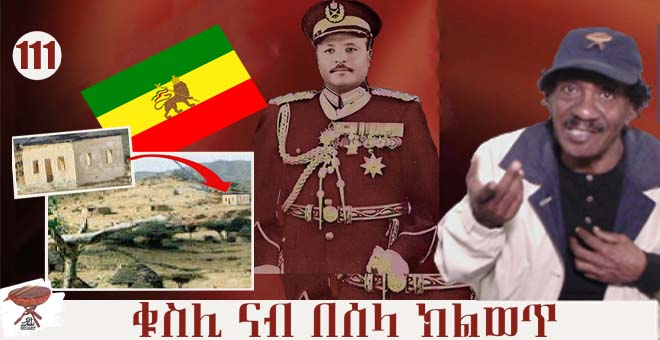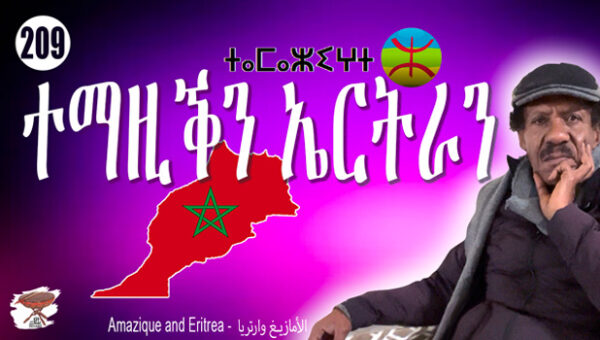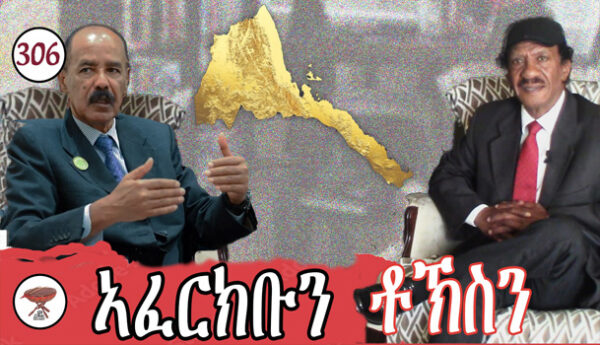Benevolent Opposition!
![]()
The Lion that was is no more. The guardians that were are not anymore. The once untouchable EPLF is now prone to criticism not only from adversaries, dissenters, and opposition but also from the guardians of the EPLF school of thought itself. And then there is this serious misgiving: some EPLF veterans consider the PFDJ an alien entity to the EPLF they new. They are disappointed believing that the PFDJ betrayed the legacy of the EPLF. To the non-EPLF Eritreans, talking about EPLF and PFDJ as two separate entities is received with a half blocked ear.
It has been customary for Eritreans to cross their border and launch resistance of all sorts from foreign lands; this era is no exception. Welwel (Welda’ab Weldemariam) was the first Eritrean political figure to flee his country and land in Egypt where he gave the Haile Sellasie’s regime continuos naightmarish-migraine, through the microphone of Cairo Radio.
The founders of the ELF launched their struggle from across the Eritrean borders where Osman Sabbe, Idris Mohammed Adem, Idris Gelawdios and others had taken refuge.
Mohammed Said Nawud, the founder of the Eritrean Liberation Movement that organization that was popularized as Mahber Shew’ate, was conceived, founded and organized from Port Sudan.
An Eritrean Students Movement founded in the USA had an active role in the Eritrean struggle. The movement, Eritreans for Liberation in North America, was allied to Sabbe’s PLF whom they abandoned later to support Issayas’ bid for the creation of the EPLF.
After the golden age of the fifties and sixties, the Diaspora Eritrean Intellectuals, especially those who resided in America, became mere followers of the politics of their country and seldom took the initiative to participate in the formulate the politics of their countries. They were extremely partisan and had a very passive role during the internecine-armed conflicts of the seventies and eighties. The only time that they showed a bold and collective stand was when they made their disapproval of the EPLF’s mellow policy towards the Soviet Union which they pressured the EPLF to abandon its policy and openly criticize the then Soviet Union for siding with Ethiopia against the Eritrean struggle.
In the recent conflict between Eritrean and Ethiopia, the Intellectuals choose to be bystanders at best and uncritical followers of the EPLF leadership at worst. They tenaciously supported the Eritrean Government even when they knew of its wrong policies and its war and diplomatic strategy that was taking Eritrea to the abyss. The result of the catastrophic war was evident from the beginning but those who were supposed to warn against it choose to be silent or kept igniting the already volatile situation. It took them the Ethiopian invasion of Eritrea in May of 2000 to wake up from their deep sleep. As usual, they forgot the root cause of Eritrea’s sufferings and kept themselves busy with side issues and minor incidents. They shied away from internal issues concerning the deteriorating human and civil rights situation; the unjust justice system; the blunders of the economic policies and other issues of governance. The call for change and reconciliation received a big blow dealt by the Intellectuals.
The result of the last confrontation made hundreds of thousands of Eritreans flee their homes and seek shelter in the open! Today, Eritrean territories that amount to about a fifth of Eritrean soil is under the mercy of the Ethiopian invading Army. Eritrea is waiting for a defense-guarantor in the UN peacekeeping forces. The government failed in protecting its citizens from the added suffering of refugism. It failed in protecting the properties and citizens and their towns and villages. It failed in averting the dangers to the cultivation season. Our people, despite the much advertised self-reliance policy, are exposed to hunger and handouts from charities.
In Eritrea, the general public has been wishing for a change in governance since the mid-nineties. The first few years after independence, many remained skeptics about the EPLF’s will to change. Others granted the EPLF unlimited benefit of the doubt. As time would tell late, the skeptics were right.
It is still fresh in history books how the despicable Dergue kidnapped the popular uprising of 1974 and installed itself in the helm of the Ethiopian politics. That kidnap was accomplished with the active support from some Ethiopian intellectuals. Apart from the Ethiopian experience, there are ample examples in the world where change was instigated by the people and at some stage, an elite kidnaps and controls the initiatives for change.
Such kidnap, if successful, would certainly result in confusing the direction of change where the elite would redirect the efforts to serve a narrow agenda. This, as in other places, would certainly lead to a vicious cycle of discontent and unresolved issues.
The exclusive news linked to the front page serves as an incentive for reflection. The initiators are all obsessed with exclusionist attitude. Furthermore, their tactics of marginalising the perceived “others” while they struggle to kidnap the efforts midway to serve their narrow cliques is abhorrent and opportunistic. They have to be warned that what Eritrea needs is an inclusive genuine change and nothing less. Otherwise, the forces of change that shook them of their deep sleep are wide-awake and would do the shaking once more if need be in the future. What is needed is a selfless, genuine, courageous facing of the problems for the sake of Eritrea; narrow agendas do not serve Eritrea anymore. None the less, any move to alleviate the situation in Eritrea, be it humanitarian to assist the displaced, or to reform the political structure towards democratization, must be encouraged. However, we must always plead, ‘Dear confidantes, have mercy on Eritrea.’




Awate Forum